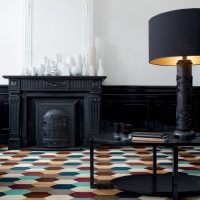
Bisazza Flooring
22 December 2016
25 June 2015
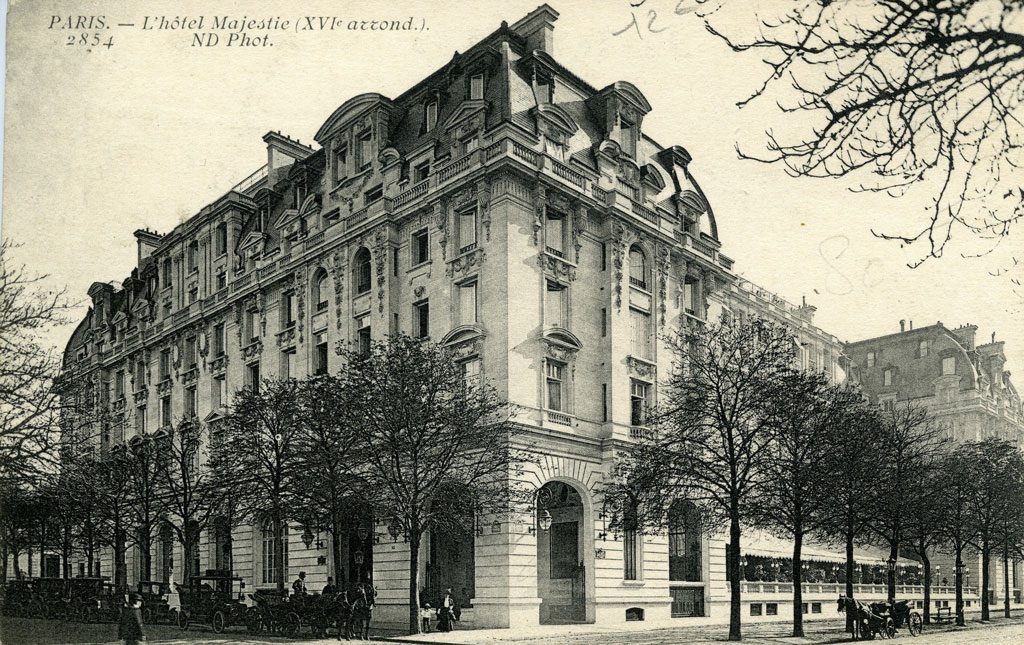
In the renovated rooms of the Hotel Peninsula Paris the allure and flavour have remained unchanged throughout time. The hotel, a short walk from the Arc de Triomphe, is located in a magnificent Haussmanian mansion of the late nineteenth century. Opened for the first time to the public in 1908 as the Grand Hotel Majestic, leading figures of European culture stayed here. In 1946, during World War II, it was the headquarter of UNESCO; in1958 it was designated as a conference centre for high profile government events. A return to the first intended use, namely a hotel, was decided in 2010, when the building was acquired by the Katara Hospitality fund.
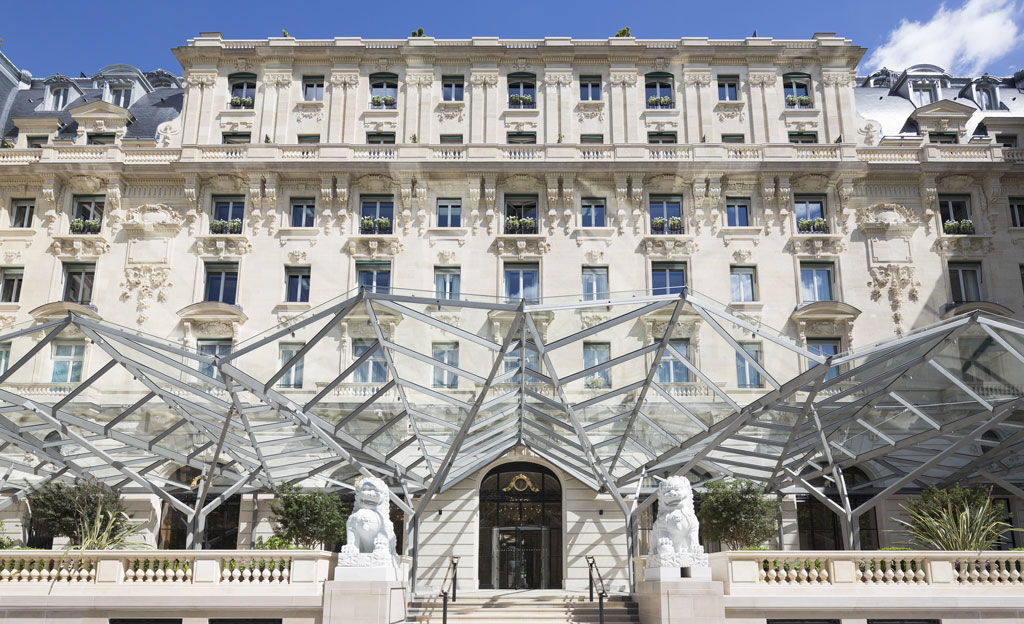
Since then – and for 4 consecutive years – more than 3,000 skilled workers and restorers have worked in rotation to return the hotel to its former glory. To get an idea of the work, think that just for the restoration of the facade, twenty stonemasons devoted 12 hours of labour to carve every single flower! The interior astounds one with its wealth of rooms, finished with high frescoed ceilings, gilded capitals, mosaics and precious marbles.
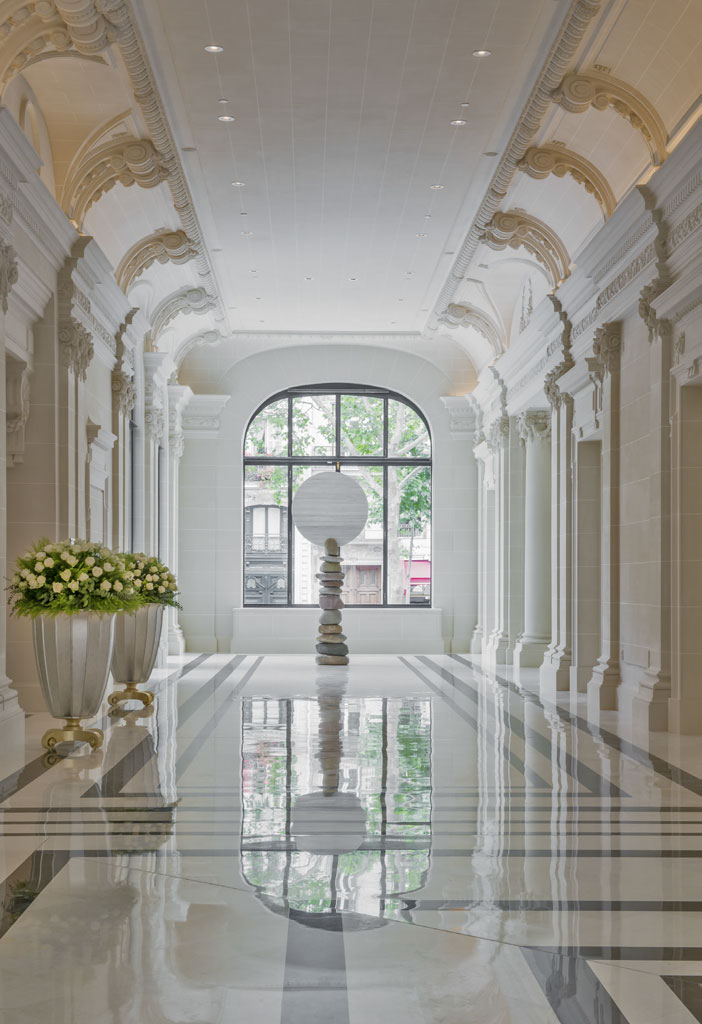
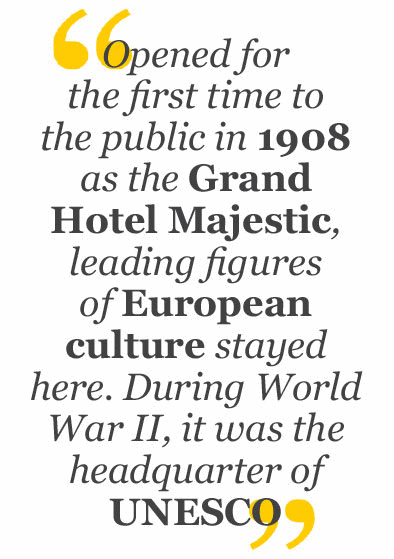
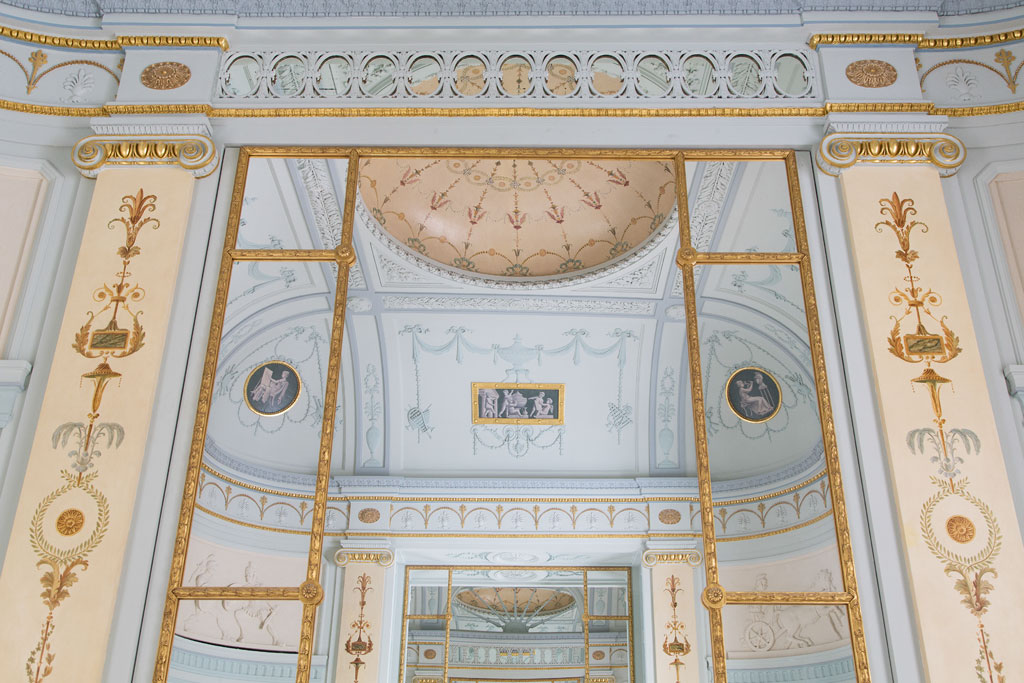
The Peninsula Hotel has over 200 rooms (34 suites) spread over six floors. This is not just a “place to stay”, but a place to live thanks to its ‘offering’ of bars and restaurants. On the ground floor is the majestic restaurant called The Lobby that offers an international menu. Further to this offer is the historic Kléber Bar, which specializes in cocktails and wines, the Lili Chinese restaurant with its Cantonese dishes, the Terrasse Kléber and the spectacular rooftop restaurant Oiseau Blanc from which to enjoy a magnificent view of Paris whilst tasting traditional French dishes.
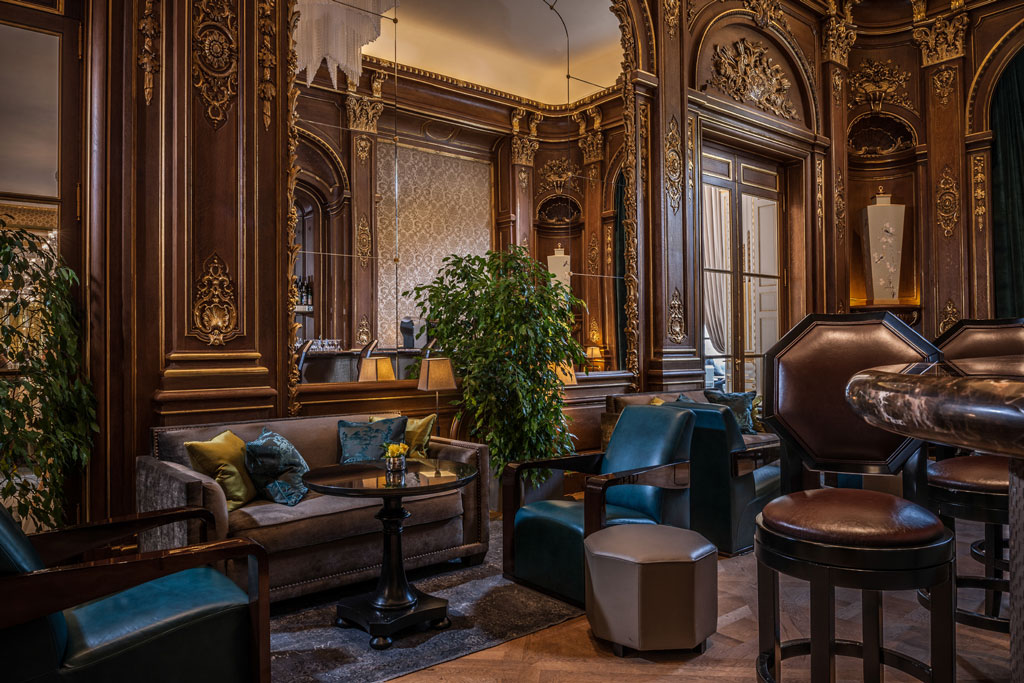
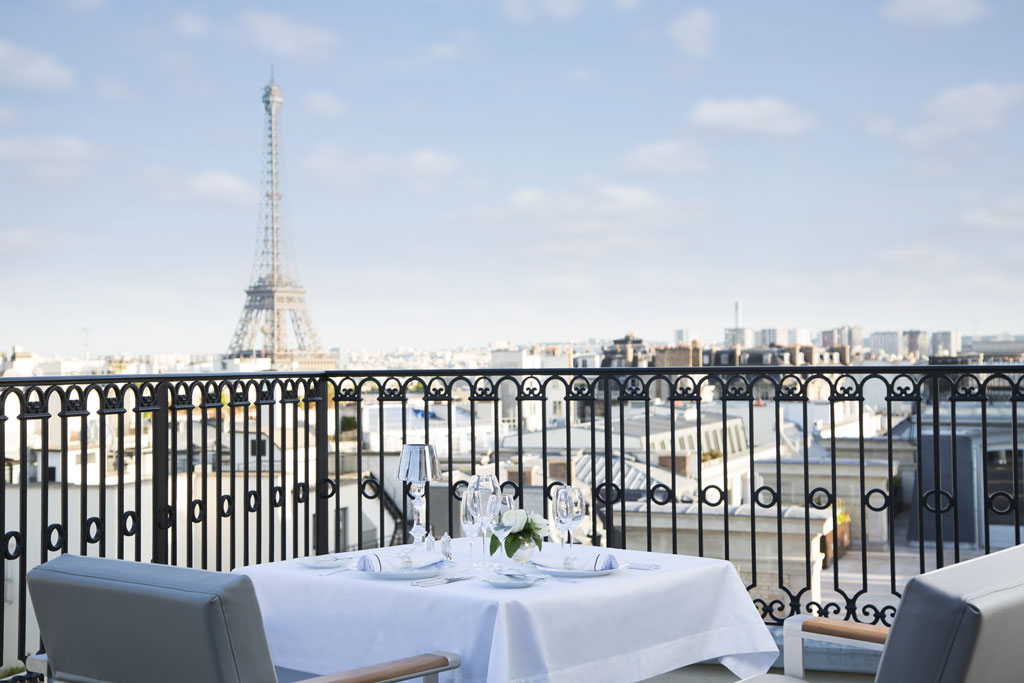
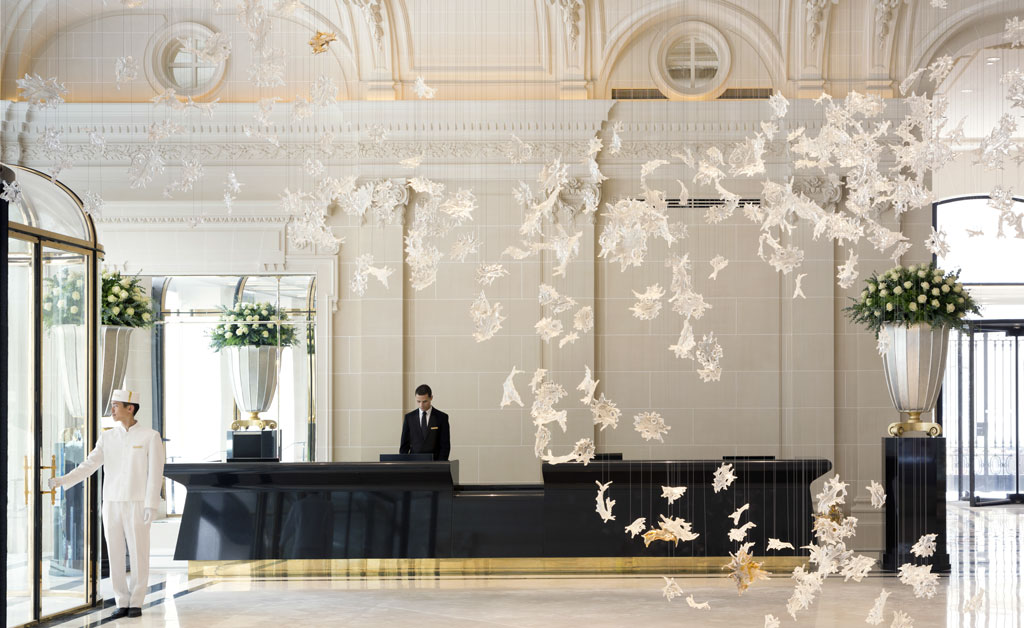
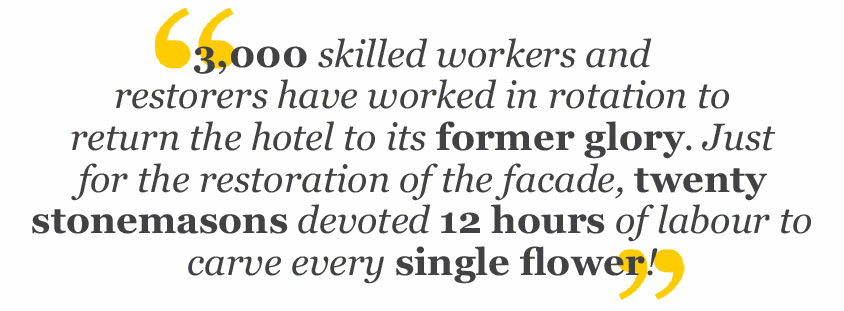
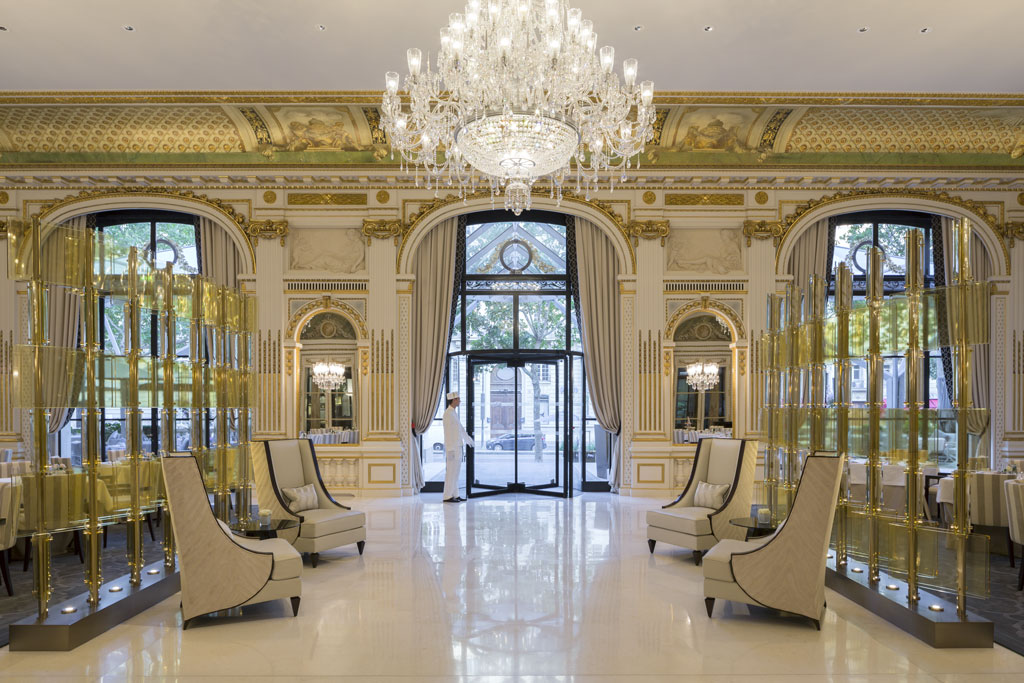
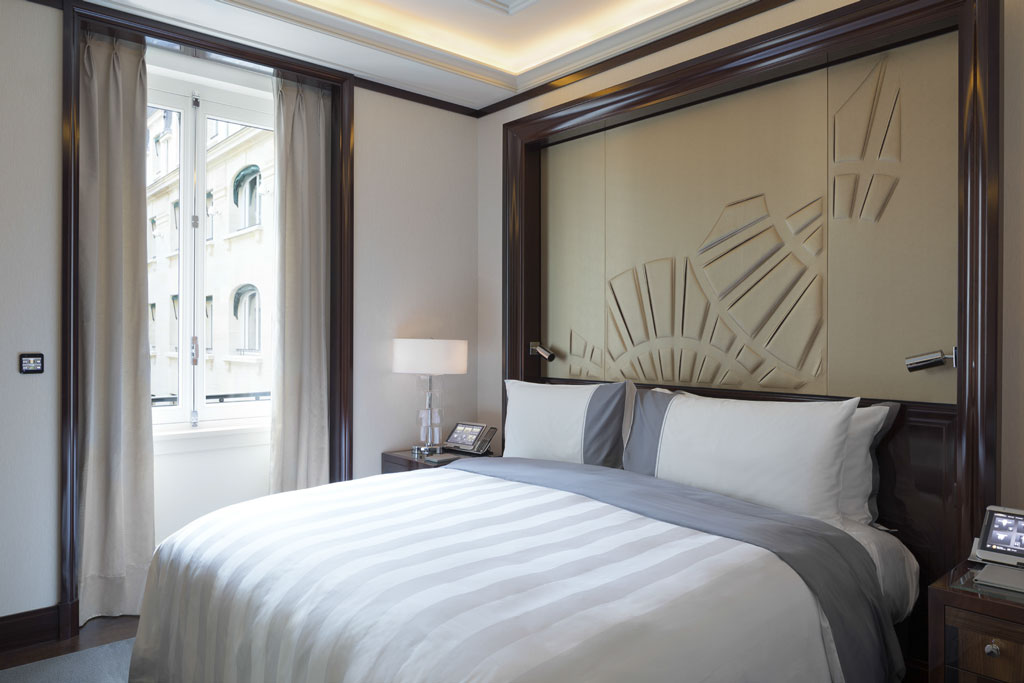
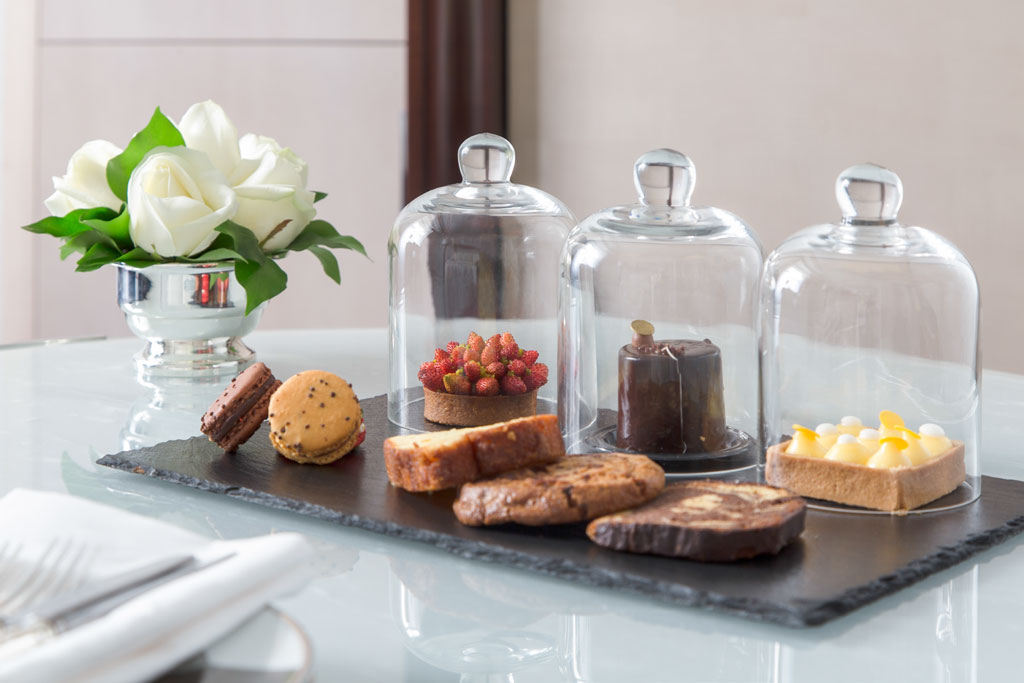
WHERE: 19 Avenue Kléber, 75116 Paris, Francia
In the renovated rooms of the Hotel Peninsula Paris the allure and flavour have remained unchanged throughout time. The hotel, a short walk from the Arc de Triomphe, is located in a magnificent Haussmanian mansion of the late nineteenth century. Opened for the first time to the public in 1908 as the Grand Hotel Majestic, leading figures of European culture stayed here. In 1946, during World War II, it was the headquarter of UNESCO; in1958 it was designated as a conference centre for high profile government events. A return to the first intended use, namely a hotel, was decided in 2010, when the building was acquired by the Katara Hospitality fund.
Since then – and for 4 consecutive years – more than 3,000 skilled workers and restorers have worked in rotation to return the hotel to its former glory. To get an idea of the work, think that just for the restoration of the facade, twenty stonemasons devoted 12 hours of labour to carve every single flower! The interior astounds one with its wealth of rooms, finished with high frescoed ceilings, gilded capitals, mosaics and precious marbles.
The Peninsula Hotel has over 200 rooms (34 suites) spread over six floors. This is not just a “place to stay”, but a place to live thanks to its ‘offering’ of bars and restaurants. On the ground floor is the majestic restaurant called The Lobby that offers an international menu. Further to this offer is the historic Kléber Bar, which specializes in cocktails and wines, the Lili Chinese restaurant with its Cantonese dishes, the Terrasse Kléber and the spectacular rooftop restaurant Oiseau Blanc from which to enjoy a magnificent view of Paris whilst tasting traditional French dishes.
WHERE: 19 Avenue Kléber, 75116 Paris, Francia



The Moodboarders is a glance into the design world, which, in all of its facets, captures the extraordinary even within the routine. It is a measure of the times. It is an antenna sensitive enough to pick-up on budding trends, emerging talents and neglected aesthetics. Instead of essays, we use brief tales to tune into the rhythm of our world. We travelled for a year without stopping, and seeing as the memory of this journey has not faded, we have chosen to edit a printed copy. We eliminated anything episodic, ephemeral or fading, maintaining a variety of articles that flow, without losing the element of surprise, the events caught taking place, and the creations having just bloomed.